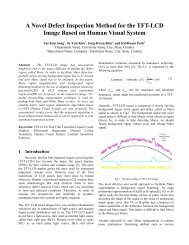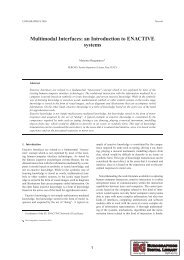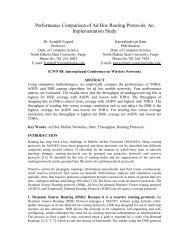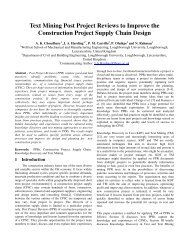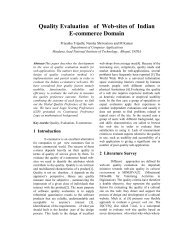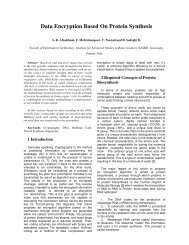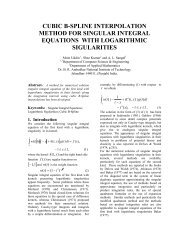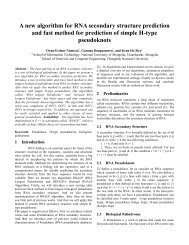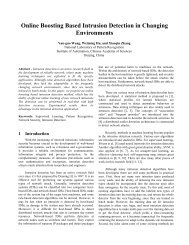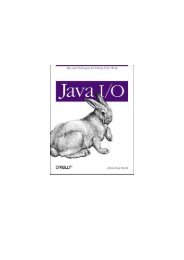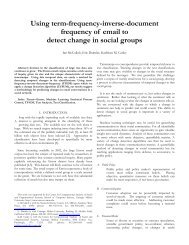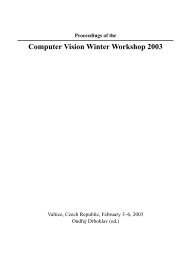O'Reilly - Java Message Service
O'Reilly - Java Message Service
O'Reilly - Java Message Service
Create successful ePaper yourself
Turn your PDF publications into a flip-book with our unique Google optimized e-Paper software.
<strong>Java</strong> <strong>Message</strong> <strong>Service</strong><br />
avoids processing the first message if the second message fails to be delivered. If the<br />
messages were to be separately acknowledged, the client could fail after the first message<br />
was acknowledged, but before the second message was fully processed. If this occurred,<br />
the first message would be considered delivered by the JMS provider, yet not fully<br />
processed by the client. It would be effectively lost. Delaying acknowledgment provides a<br />
way to write the application so that it behaves correctly when failures occur. If you still<br />
have your B2B application up and running, try typing the request for surfboards in the<br />
command window for the QWholesaler application:<br />
Surfboards, 999.99, 499.99<br />
Notice that some output appears in the QRetailer window to indicate that the message was<br />
received. Kill the QRetailer application by hitting Ctrl-C in its command window. Next,<br />
type in the second line item in the QWholesaler application:<br />
Wetsuits, 299.99, 149.99<br />
Now restart the QRetailer application. You should see output in the QRetailer window<br />
indicating that both the Surfboard message and the Wetsuits message have been received.<br />
This new instance of the QRetailer receives both messages because the earlier instance of<br />
QRetailer never sent an acknowledgment for the first message. Therefore, when we<br />
restarted the QRetailer, the JMS provider redelivered the Surfboard message, and then<br />
sent the Wetsuits message. A single acknowledgment is now sent, acknowledging both<br />
messages. The JMS provider has now fullfilled its part of the contract with the receiving<br />
application, and can remove the messages from its persistent store.<br />
6.3.2.1 Compensating transactions<br />
In the code that deals with the redelivered flag, we introduced a call to<br />
processCompensatingTransaction( ):<br />
private void autoBuy (javax.jms.<strong>Message</strong> message){<br />
int count = 1000;<br />
try {<br />
...<br />
if ( saveDesc == null )<br />
{<br />
if ( message.getJMSRedelivered( ) )<br />
processCompensatingTransaction( );<br />
processInterim<strong>Message</strong>s( itemDesc );<br />
return;<br />
}<br />
...<br />
}<br />
}<br />
This code is executed when the client restarts and receives redelivered messages, as was<br />
the case in the client failure exercise we just went through. The first message of the<br />
sequence will have the redelivered flag set on the message, causing the<br />
processCompensatingTransactions( ) method to be invoked:<br />
private void processCompensatingTransaction( )<br />
{<br />
saveDesc = null; // null out "saved" work<br />
}<br />
94



